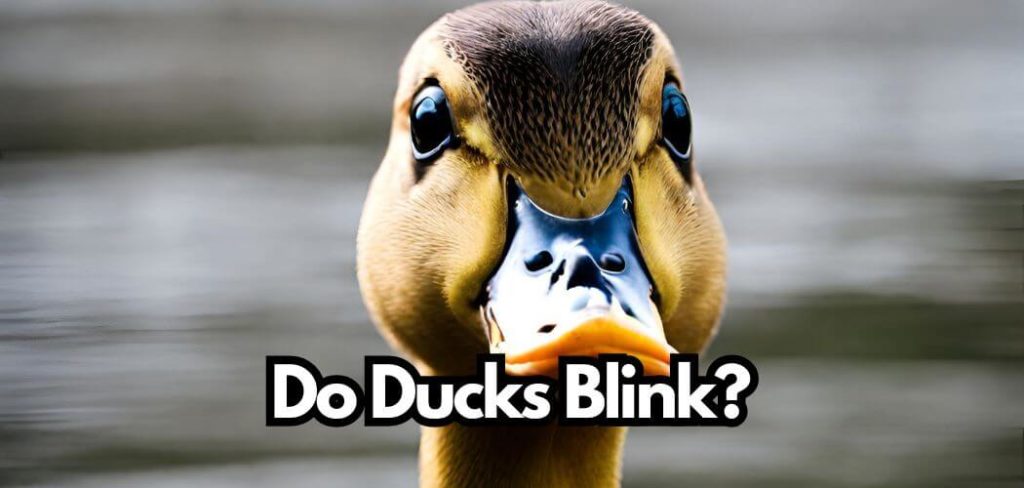Ducks are fascinating creatures that have intrigued humans for centuries. They are known for their distinctive quacks, their ability to swim and dive, and their unique, webbed feet.
But have you ever wondered if ducks blink? It’s a question that may seem trivial, but it has piqued the curiosity of many people.

Do ducks blink their eyes?
Yes, ducks do blink. However, the way they blink is different from how humans blink. Ducks have a third eyelid, called a nictitating membrane, a thin, translucent eyelid that moves horizontally across the eye.
This membrane helps protect the eye from debris and keeps it moist while the duck is swimming or diving.
When the duck blinks, the nictitating membrane moves across the eye first, followed by the upper and lower eyelids.
While blinking may seem insignificant, it is an essential function for all animals with eyes. Blinking helps keep the eyes moist, removes debris, and protects the eyes from damage.
Understanding how ducks blink and the role of the nictitating membrane can provide insight into the unique adaptations of these waterfowl.
Do they have eyelids?
Ducks unlike humans have three eyelids and their eye structure is different from ours. Ducks have eyes located on the sides of their heads, giving them a wide field of vision.
Their eyes are relatively large and have a flattened shape, which helps them see both above and below the water’s surface.
The eyes are protected by a third eyelid, called the nictitating membrane, which is translucent and moves horizontally across the eye. This membrane helps protect the eye while still allowing the duck to see.
Ducks also have a unique blinking mechanism that allows them to keep one eye open while the other is closed.
This is known as unilateral eye closure and allows ducks to keep watch for predators while still protecting their eyes.
Ducks do not have traditional eyelids but rely on their nictitating membrane to protect their eyes. Their unique blinking mechanism allows them to keep one eye open while still protecting the other.
Do ducks blink upwards?
Unlike humans, ducks do not blink their eyes by closing them downwards. Instead, they have a thin, transparent third eyelid called the nictitating membrane that moves horizontally across the eye from the inner corner to the outer corner.
This membrane acts as a windshield wiper, protecting the eye from debris and keeping it moist.
How often do ducks blink?
Ducks blink quite frequently, and the frequency of their blinking increases when they are in water.
They blink to keep their eyes moist and free from debris, which is essential for their survival.
Ducks also blink more when they are nervous or uncomfortable, indicating that blinking is a sign of their emotional state.
Do Ducks Sleep with Their Eyes Open?
Ducks have a unique way of sleeping where they can rest one half of their brain while keeping the other half active.
This allows them to stay alert to potential dangers while still getting the rest they need. But what about their eyes? Do ducks sleep with their eyes open?
Ducks do not sleep with their eyes open instead they keep them partially closed. when ducks are resting or sleeping, they often tuck their heads under their wings.
This serves two purposes: it keeps their head warm and it covers their eyes. While their eyes may not be completely closed, they are shielded from light and movement, allowing the duck to rest more comfortably.
So, ducks do not sleep with their eyes completely open, but they do keep them partially open and protected by their nictitating membrane while resting.
This unique adaptation allows ducks to stay alert to potential dangers while still getting the rest they need to function properly.
Ducks have a special type of lens in their eyes that can change shape depending on whether they are looking above or below the water.
This allows them to see clearly in both environments, which is important for their survival.
Final thoughts:
Ducks are aquatic birds that spend a lot of time in the water. As a result, they have developed adaptations that help them survive in this environment.
One of these adaptations is their ability to keep their eyes moist while underwater by using their unique eyelids that can cover their eyes and protect them from water.
